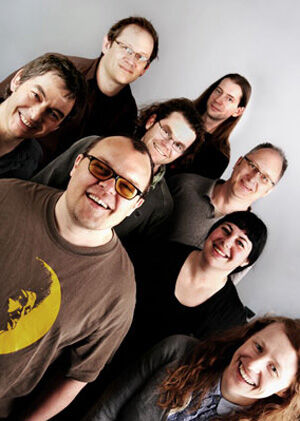University News Last updated 05 May 2009

Birmingham City University academics, working with the BBC and the Arts and Humanities Research Council (AHRC), are set to publish papers arising from their research partnership the ‘Knowledge Exchange Programme'.
The project was launched in 2007 to gain audience insights outside the scope of the BBC's own in-house research, and give the academic community the benefit of unprecedented access to BBC archive material and internal data. The Birmingham City University academics worked with colleagues at two other universities in examining BBC radio listeners online. Having disseminated the findings internally, some have been put into already working practice with the BBC.
Researchers from the Interactive Cultures research centre at Birmingham City University partnered with BBC Audio and Music Interactive on a project investigating the online activities of specialist music fans, and how the BBC could respond to their changing interests and activities. The study suggested that popular BBC brands or presenters could be used to introduce users to a wider range of BBC content. These recommendations have been disseminated around the BBC for consideration within future projects.
The principle investigator on the ‘BBC radio listener's online project' and director of the Interactive Cultures research centre, Professor Tim Wall said: "It has been a marvellous opportunity to work with a prestigious organisation like the BBC, and especially the innovative professionals in the BBC's Audio and Music Interactive unit. The BBC has a long tradition of providing for the interests of specialist music fans, be they lovers of jazz, indie rock, or urban music, and we hope that our research will help BBC staff take up the challenge of continuing that support well into the twenty-first century."
BBC Controller, R&D Matthew Postgate said:
"This project allowed us to gain valuable insight into audience attitudes and behaviours that we simply could not have gained any other way. I'm encouraged that much of it has already been put into practice and that we've been able to put something back into the wider academic community."
AHRC Chief Executive Philip Esler said: "The UK's arts and humanities research community is the strongest in the world. As we move into a digital future, the ability of these researchers to provide content and understanding of human interaction with digital media in partnership with organisations like the BBC gives the UK a unique comparative advantage among the advanced economies. Research like this that goes to the heart of the digital economy would amply repay greater public investment.